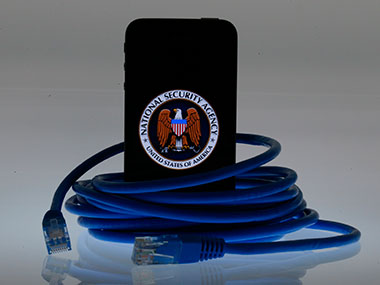Washington: The House has moved the US closer to ending the National Security Agency’s bulk collection of Americans’ phone records, the most significant demonstration to date of leaker Edward Snowden’s impact on the debate over privacy versus security. But the final version of the legislation, “watered down” in the words of one supporter, also showed the limits of that impact. The bill was severely weakened to mollify US intelligence agencies, which insisted that the surveillance programs that shocked many Americans are a critical bulwark against terror plots. The bill was approved 303-121, which means that most House members can now say they voted to end what many critics consider the most troubling practice Snowden disclosed — the collection and storage of US calling data by the secretive intelligence agency. But almost no other major provision designed to restrict NSA surveillance, including limits on the secret court that grants warrants to search the data, survived the negotiations to get the bill to the House floor. And even the prohibition on bulk collection of Americans’ communications records has been called into question by some activists who say a last-minute change in wording diminished what was sold as a ban. [caption id=“attachment_1330547” align=“alignleft” width=“380”] Representational image. Reuters[/caption] “People will say, ‘We did something, and isn’t something enough,’” said Steven Aftergood, who tracks intelligence issues for the Federation of American Scientists. “But this bill doesn’t fundamentally resolve the uncertainties that generated the whole controversy.” Though some privacy activists continued to back the bill, others withdrew support, as did technology companies such as Google and Facebook. Rep. Mike Rogers of Michigan, the Republican chairman of the House Intelligence Committee, said, “I believe this is a workable compromise that protects the core function of a counterterrorism program we know has saved lives around the world.” The measure now heads to the Senate, where Democratic Majority Leader Harry Reid told reporters Thursday that “we must do something.” The USA Freedom Act would codify a proposal made in January by President Barack Obama, who said he wanted to end the NSA’s practice of collecting and storing the “to and from” records of nearly every American landline telephone call under a program that searched the data for connections to terrorist plots abroad. The phone records program was revealed though the leaks last year by Snowden, who used his job as a computer network administrator to remove tens of thousands of secret documents from an NSA facility in Hawaii. Snowden fled first to China, then Russia where he is avoiding an extradition order to face criminal charges for revealing classified information. The phone companies create and store those billing records, and the legislation still would give the NSA authority to request batches of data from the companies to search in terrorism investigations in response to a judicial order. Law enforcement agents routinely obtain such records in criminal investigations. The USA Freedom Act started its life as the idea of those who wanted to clamp down on NSA surveillance, but it was “watered down,” as Rep. Jan Schakowsky, D-Illinois, acknowledged, shedding a series of provisions favored by civil liberties activists. Some activists continued to back the bill, including the American Civil Liberties Union, whose Washington legislative director, Laura Murphy, called it an imperfect but “unambiguous statement of congressional intent to rein in the out-of-control NSA.” Technology companies such as Google and Facebook said they were most concerned with a last-minute definition change that they fear will allow the government to collect huge volumes of records — including, for example, records of all the phone calls made from a particular U.S. city during a certain period, or all the internet data associated with a particular commercial router. The bill’s original text limited the government’s data requests to those associated with specific people, entities or accounts. The approved version says the government may use any “specific selection term” to set the parameters of its search, including a type of device or an address. The new language appears to allow much broader data requests. “The new version deliberately contains ambiguity in a very critical area,” said Harley Geiger, senior counsel for the Center for Democracy and Technology. “We’ve learned about the government track record of exploiting ambiguity in the law to broaden its surveillance activity.” Democratic Rep. Adam Schiff, a member of the House Intelligence Committee, said the vagueness was designed to protect the government’s surveillance methods, not to facilitate secret bulk collection. Other provisions that were dropped from the bill included requirements to estimate the number of Americans whose records were captured under the program, and the creation of a public advocate to challenge the government’s legal arguments before the secret surveillance court. NSA officials were pleased with the bill for another reason: The new arrangement will give them access to mobile calling records they did not have under the old program. Associated Press
The House has moved the US closer to ending the National Security Agency’s bulk collection of Americans’ phone records, the most significant demonstration to date of leaker Edward Snowden’s impact on the debate over privacy versus security.
Advertisement
End of Article
Written by FP Archives
see more


)

)
)
)
)
)
)
)
)



